A career for life?
I am a mum whose daughter has three more years at primary school. In our bit of west London the planning for senior schools starts early and trying to figure out where a child will thrive early on is hard. How can you possibly know what will help them get the career they might start and will hopefully be brilliant at in 11 years time?
And how do you do that in a world where the jobs our 8 year olds will do might not even exist yet?
It makes you think about skills and strengths. Instead of a type of job we can think about how we give them strengths and characteristics that will set them up for life. Things like confidence, being able to persuade others, connecting different ideas and concepts, speedy processing of ideas, leadership, taking initiative, being coachable and easy to work with, bouncing back from setbacks. What you might notice is these are all skills that we learn in sport, sometimes in school (if you find one that has a brilliant PE department) and often outside in co-curriculars.
Many of our children do sport. They might well be in academies or swim squads or comp teams or on performance pathways. Most of them won’t ‘make it’ into a professional career. But they will have learn phenomenal skills and have abilities that give them so many more options when they do come out the other side of education.
What this also does is mean a portfolio career (of doing a number of different things) or the ability to change career becomes much easier. On our Be Braver podcast we often interview those who have changed career mid life. I myself did this. My new world (sport psychology) is very different to my old (communications director) but so many of the skills remain.
So my call to action is that as well as looking at the subjects our kids are doing, the grades they get, the levels they achieve we also focus on the specific strengths they are developing so we can celebrate how those can be of benefit across all parts of their lives now and in the future.
How can we use AI in Sport psychology?
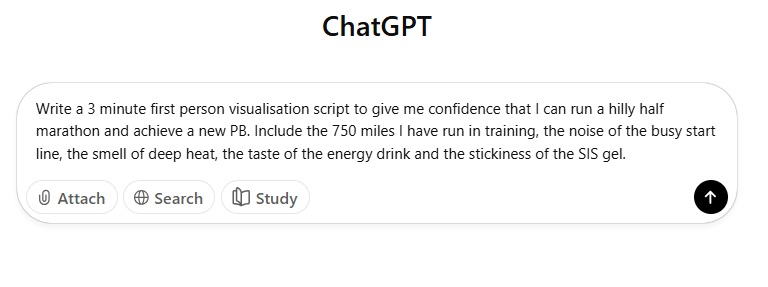
When AI was being discussed in psychology a few years ago I felt defensive. How is this coming to take away our jobs? How do we protect ourselves? My view is softening. There are some speedily developing ways that AI can support athletes really effectively. The App Mastery (which I helped work on) is phenomenal for visualisation and goal setting. It asks you some questions, you answer them. It creates a visualisation based on whatever will help you most in your sport or area of high performance. No script writing necessary. No recording of the script. It does it all for you and helps build up your belief that you can achieve that goal. If you want an immediate version head off to ChatGTP. Here you can prompt it to write your script for you. Here is an example…
Prompt for ChatGTP: Write a first person, 3 minute visualisation script for a [distance] open water swim race at [the venue] on Saturday where I will perform in a way I am proud and matches the training I have given this challenge. I will have found the current and be able to stay within it so feel confident that I will get to the end. While in the water I will be able to see [ ], hear [ ], feel [ ] and smell [ ]. I will be able to taste the [whatever you usually eat or drink] that I had warming up before getting into the sea. I will be enjoying the experience and when I cross the line I will feel [ ].
See what came out of the prompt I gave it above for the half marathon…But also spot the weird element.
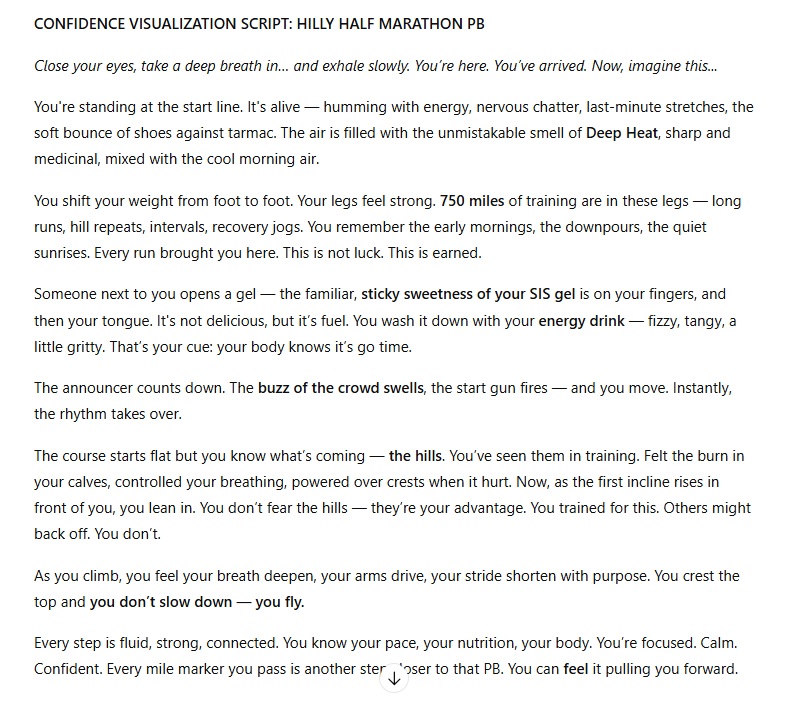
Tool of the month: Identifying your values
My September social media is focusing on values, the ways of being that are at the core of who you are. Values are really important as a high performer for three reasons:
- If someone (or worse still, you) violate a value then it can really trigger your threat system. When you have identified your values you can also identify the scenarios which might appear in your sport and make you behave as if you are under threat.
- We can soothe our threat system a little when we acknowledge that we are feeling the fear but that we are going to do the difficult thing anyway, because we want to follow our values.
- We can live a little more authentically each day by following our values.
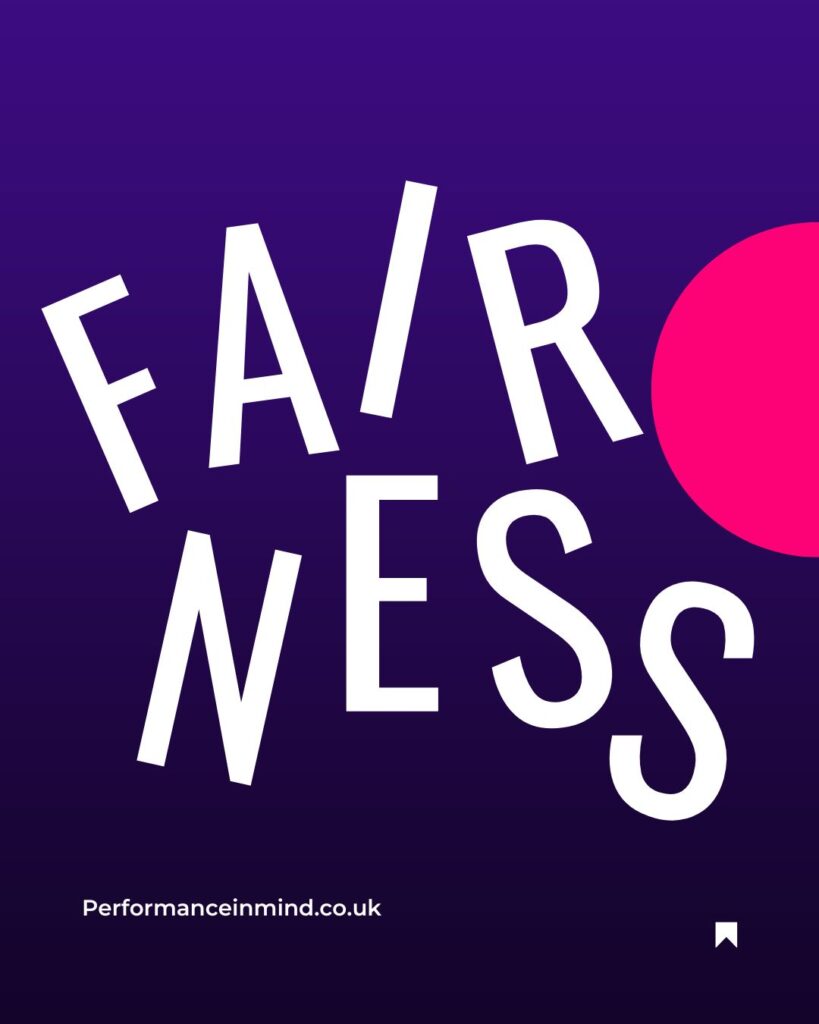
Let’s take an example. We can use the value of fairness. I pick this as it is often an important value for athletes with ADHD. If fairness is a core part of who you are and what you believe in then…
If someone cheats (a dodgy line call in tennis, cutting the corner in a parkrun, handing in a dubious score card in golf) it will totally trigger your threat system making you feel awful and behave worse.
In a competition when you are feeling the fear (of discomfort, messing up or judgement) then reminding yourself that you are always behaving with fairness and integrity can help you battle through.
Doing something each day that focuses on fairness (donating to charity, volunteering, standing up for others in unfair situations) can help you feel more yourself.
The values sheet is below.
- Start by crossing off the words that don’t feel like core values
- Then get harsher and cross off more.
- When you feel stuck run the values through the filter of what would happen if they were violated? If they would trigger your threat system they stay. If you would cope ok then they get crossed off.
- Keep doing this until you have 10-12 values left. Look at these and see if you can spot any themes.
- Once you’ve seen the themes think about what you might title each theme.
- The 3 or 4 themes you have found will be your core values.
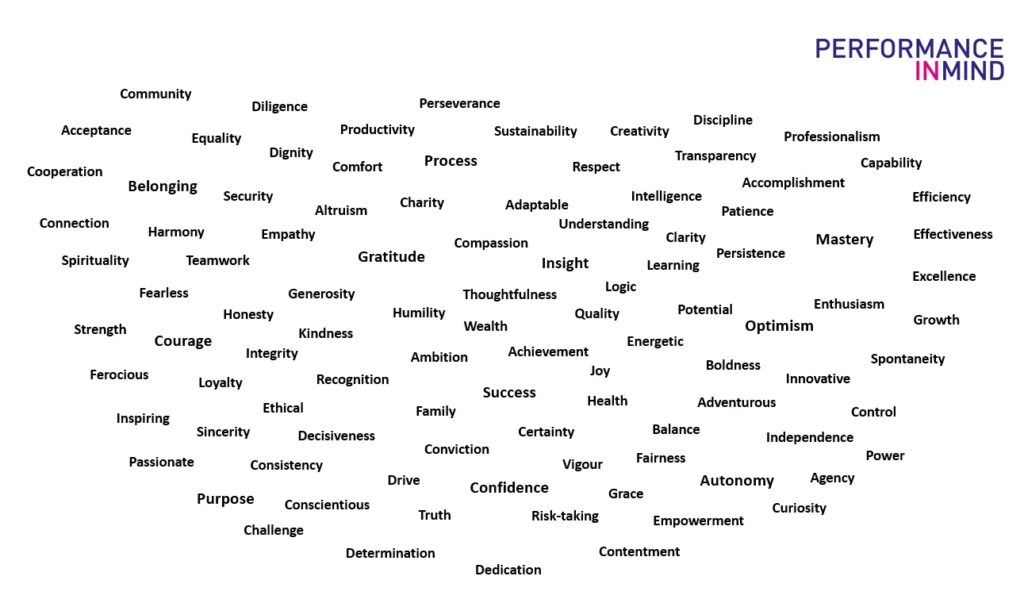
Finally, lessons from the field
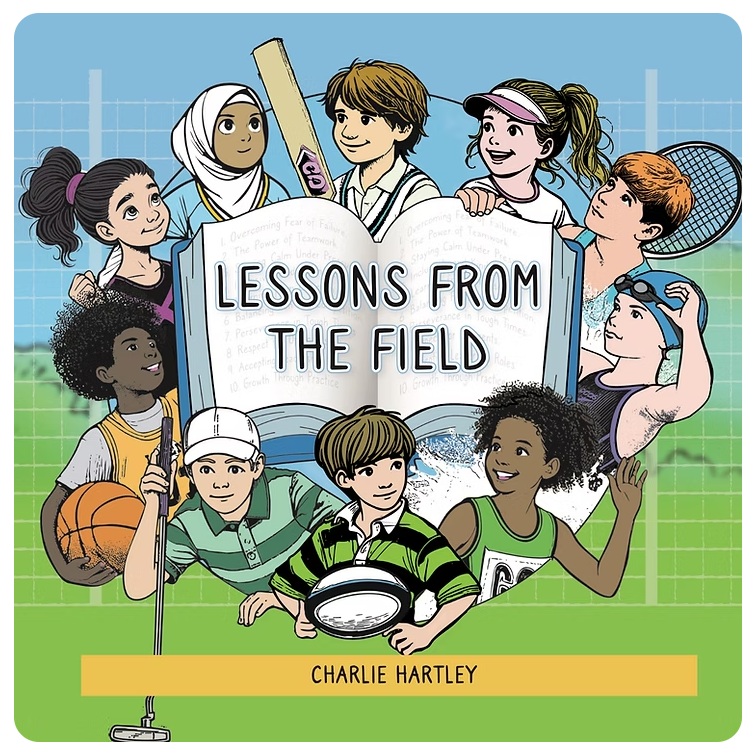
If I were a more skilled writer I would be writing books to fill the space where there is a huge gap in the market; fiction books for children and teens that weave in the messages we teach in performance psychology; acceptance of the difficult things that can happen, reminders of how we can do achieve hard things, ways to build resilience, boost confidence, fearing failure (but doing the thing anyway) and staying calm under pressure. Former pro cricketer Charlie Hartley has written Lessons from the Field as a way to pass on some of the brilliant lessons that sport teaches us to children. https://www.lessonsfromthefield.co.uk/

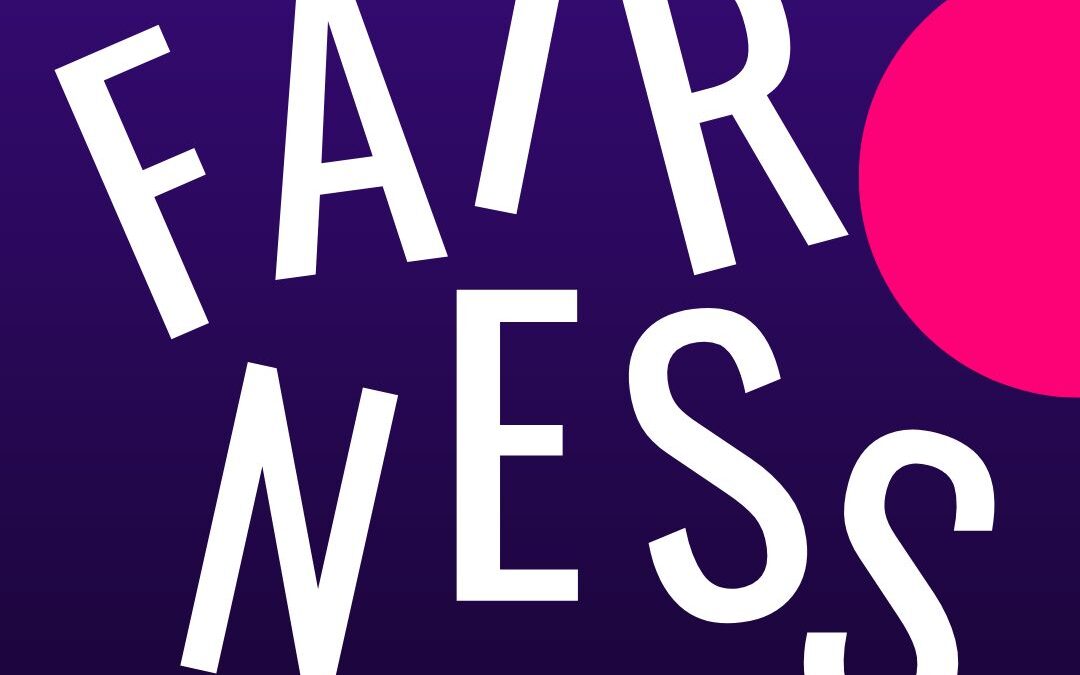
Recent Comments